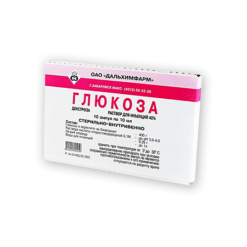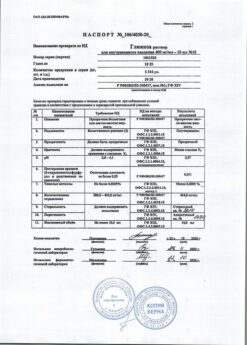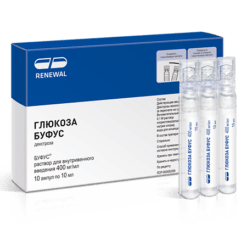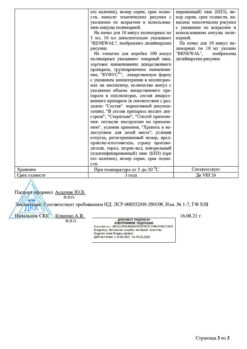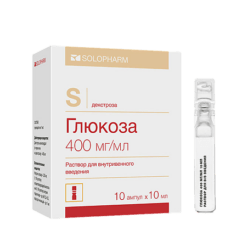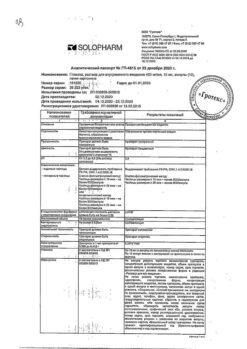No products in the cart.
Glucose, 5% 400 ml
€1.00
Out of stock
(E-mail when Stock is available)
Description
Glucose solution participates in various metabolic processes in the body, enhances redox processes in the body, improves antitoxic function of the liver, enhances the contractile activity of the heart muscle. Infusion of dextrose solutions partially replenishes water deficit. Dextrose entering the tissues is phosphorylated into glucose-6-phosphate, which is actively involved in many parts of the body’s metabolism.
The 5% solution of dextrose has a detoxifying, metabolic effect and is a source of a valuable easily digestible nutrient. When dextrose is metabolized in the tissues, a significant amount of energy is released, necessary for the vital activity of the body.
The 5% dextrose solution is isotonic. The energetic value of 5% solution of dextrose is 200 kcal/l, the approximate osmolarity of 5% solution is 278 mOsm/l, and that of 10% solution is 555 mOsm/l
Pharmaceuticals with dextrose solutionp> Pharmacokinetics
Dextrose is metabolized through pyruvate and lactate to carbon dioxide and water with release of energy.
It is completely absorbed by the body, but is not excreted by the kidneys (occurrence in the urine is a pathological sign).
Additional pharmacokinetic properties are determined by the drugs added
Indications
Indications
Hypertensive dehydration; parenteral nutrition; study of kidney function in dehydrated patients
Pharmacological effect
Pharmacological effect
Glucose solution is involved in various metabolic processes in the body, enhances redox processes in the body, improves the antitoxic function of the liver, and enhances the contractile activity of the heart muscle. Infusion of dextrose solutions partially compensate for the water deficiency. Dextrose, entering the tissues, is phosphorylated, turning into glucose-6-phosphate, which is actively involved in many parts of the body’s metabolism.
A 5% dextrose solution has a detoxifying, metabolic effect and is a source of valuable, easily digestible nutrients. When dextrose is metabolized in tissues, a significant amount of energy is released, which is necessary for the functioning of the body.
5% dextrose solution is isotonic. The energy value of a 5% dextrose solution is 200 kcal/l, the approximate osmolarity of a 5% solution is 278 mOsm/l, 10% solution is 555 mOsm/l
Pharmacokinetics
Dextrose is metabolized through pyruvate and lactate to carbon dioxide and water, releasing energy.
It is completely absorbed by the body and is not excreted by the kidneys (appearance in urine is a pathological sign).
Additional pharmacokinetic properties are determined by the added drugs
Active ingredient
Active ingredient
Dextrose
Composition
Composition
1 liter of solution contains:
active substance:
dextrose monohydrate (calculated as anhydrous) 50.0 g;
excipients:
sodium chloride 0.26 g;
water for injections up to 1 l.
Theoretical osmolarity: 286 mOsm/L.
Contraindications
Contraindications
Hypotonic dehydration.
Storage conditions
Storage conditions
In a place protected from light, at a temperature of 5–30 °C.
Manufacturer
Manufacturer
Mospharm, Russia
Additional information
| Conditions of storage | In a light-protected place at 5-30 °C. |
|---|---|
| Manufacturer | Mosfarm, Russia |
| Medication form | solution for infusion |
| Brand | Mosfarm |
Other forms…
Related products
Buy Glucose, 5% 400 ml with delivery to USA, UK, Europe and over 120 other countries.


